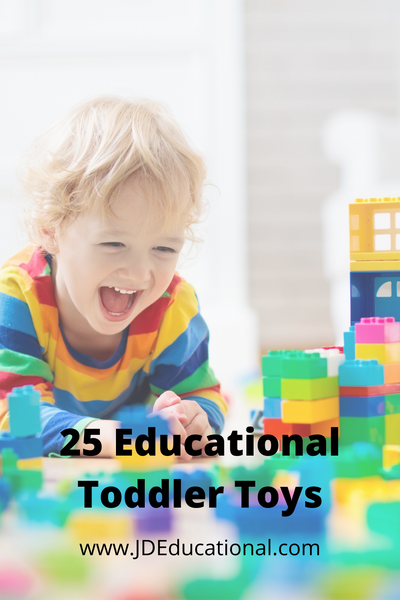
Guest Post Written by: Hehe Stewert, Doula - Read more about her at the end of this post!
Bringing home a baby can be an exciting time for the whole family. However, it can also be challenging to navigate. Introducing Child #1 to Child #2 can cause new emotions to arise for your older child and disrupt any sense of normalcy you may have. Keeping these helpful hints in mind when preparing this transition can help for a smoother change in family dynamics.
 Tip #1: Prepare in Advance with Language, Books, Songs, Pretend Play
Tip #1: Prepare in Advance with Language, Books, Songs, Pretend Play
By the time you have a second child, chances are that your older child is of age to understand language. Depending on the age of your child, your language can be as simple or as complex as you’d like (and is age appropriate). There are literally hundreds of books on becoming an older sibling—for all ages. Songs are also a wonderful way to introduce topics and language to older children. Having your child engage in pretend play about the baby can be a great way to model gentle touches and baby-safety.
(To learn how your child understands language, based on their age, please visit our Language Leap blog series). For children ages birth through 6 years old).
 Tip #2: Help your child settle into their new role.
Tip #2: Help your child settle into their new role.
The way you talk about being an older sibling has an impact on the way your child views their role. It is a delicate balance of helping them understand the responsibility of their special role while helping them maintain their own identity. Acknowledging unwanted or novel feelings that may arise during this time. Help identify these feelings and find appropriate ways to express those emotions and a way to cope.
 Tip #3: Involve your older child(ren)
Tip #3: Involve your older child(ren)
One way to help your child settle in their new role is to involve them. I’ll admit, toddler help isn’t always the most helpful. But, a little spilled milk (literally and figuratively) is worth the sense of self and pride that you will be supporting in your older child. Once you have created and introduced the language, you must model responsibility for your older child. You can have your older child hold the diaper during a diaper change or help hold the bottle while feeding the baby. There are many different ways to involve your older child and make them feel needed and included.
 Tip #4: Routines (vs schedules)
Tip #4: Routines (vs schedules)
Having a routine means you do the same things in the same order each day. Having a schedule means doing those things at the same time each day. Having two children of different ages can be hard to make into a schedule. Children want and thrive in predictable environments. Helping your older child(ren) know what comes next in their day by doing things in the same order each day can ease some other child anxiety. As your children grow, their patterns will change. For example, as your infant gets older, they will begin to sleep through the night. Having a morning routine means knowing that whenever your child wakes up (whatever time that may be), the first thing to do is change their diaper instead of trying to change their diaper everyday at the same time. Routines allow for flexibility to accommodate growth in your children where as a schedule is more difficult to accommodate changes.
 Tip #5: Carve out alone time for each child.
Tip #5: Carve out alone time for each child.
You can begin this language before the baby gets here. Again, like with preparing your child in advance, modeling this can be powerful. Before the baby is born you can tell your older child(ren) that your relationship with them won’t change, your love for them won’t be less, and you won’t forget about them. However, the arrival of a new baby can turn any older sibling’s worlds upside down. Having the reassurance of special time with you each day can help continue to support the development of attachment and, in turn, allow your older child to feel confident enough in your relationship to foster a healthy relationship with the baby. Win-win.
 Tip #6: Capture casual snapshots
Tip #6: Capture casual snapshots
Just from my experience, parents generally regret not capturing casual moments of siblings. When reminiscing, this is something that almost never fails to come up. Now, I’m not saying live your life with a phone screen between you and your child, but you don’t want to forget to document the special moments. Those moments that warm you heart are worth capturing because each time you look at that picture the warmness of that moment will consume you again. The oh-so-sweet moments will always be special.
 Tip #7: Ask for help
Tip #7: Ask for help
Let go of the ideology that you need to be a super parent. This is exhausting and often times creates more pressure than productivity. Having the correct support for such a life-changing event can make a huge difference. Surround yourself with people who believe in the power of the village and are going to support your choices as a parent. Comparing yourself, your children, and your family to others can be so tempting in today’s culture. Remember, social media can be deceiving and often shows only glimpses into someone else’s life. Being present for your children is the best thing you can give them.
The relationship between siblings is an unbreakable bond. However, your interaction and support as a parent is irreplaceable and absolutely necessary. Helping your child settle into their new role can be crucial to the way they view their role as an older sibling. Involving your older child(ren) and carving out special time for each child can help the transition and enhance sibling relationships. The chaos will be over before you know it and you’ll one day reminisce on the beautiful times. Don’t forget to take casual snapshots of your children so you can remember all of the laughs, snuggles, and special times.
About the Author:

HeHe is the founder of Tranquility by HeHe, a concierge birthing and doula service in the Boston area. She aspires to bring a spa-like environment to your birth experience. Tranquility by HeHe is an exclusive experience for expectant parents who believe they can have a beautiful birth and are looking for compassionate, encouraging, and unbiased support. Research shows that moms who are relaxed, confident, and have participated in self-care routines throughout pregnancy have shorter labors, gentler births, and are more likely to have natural, unmedicated deliveries. As a doula, HeHe views her role as the guardian of the energy of your birth experience. She wants you to be informed, in control, and supported. Self-care, relaxation, pampering, confidence in your body and trusting the process are recurring themes of the care provided by Tranquility by HeHe. There is no right or wrong; there is only what’s right for you and HeHe is here to help you explore, discover, and advocate your wants and needs to have the birth experience you’ve always wanted. Reproductive justice and positive parenting communities are two platforms that HeHe believes in fully. She serves as an expert resource on child development, birth through the first three years of life. She is a Birth Doula, Certified Family Life Educator and Director of a Newborn and Infant Program in Boston, Massachusetts.
"We can't wait to pamper you."
 Was this interesting to you? Sign up here to receive our new blogs as soon as we publish them!
Was this interesting to you? Sign up here to receive our new blogs as soon as we publish them!





